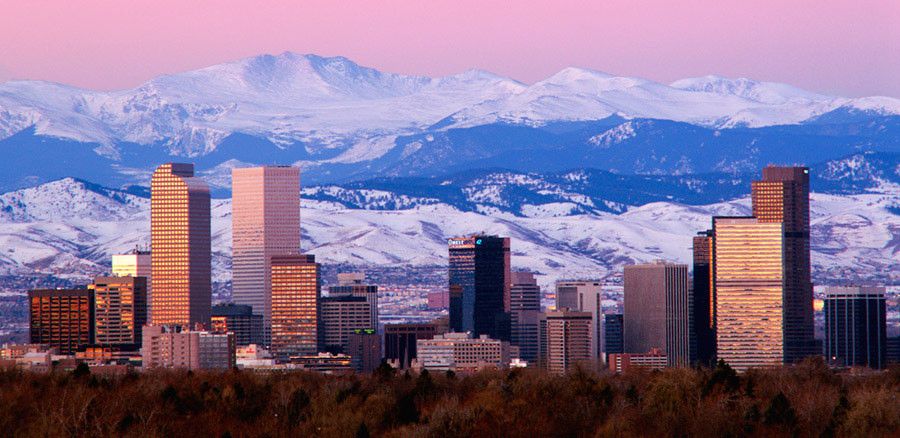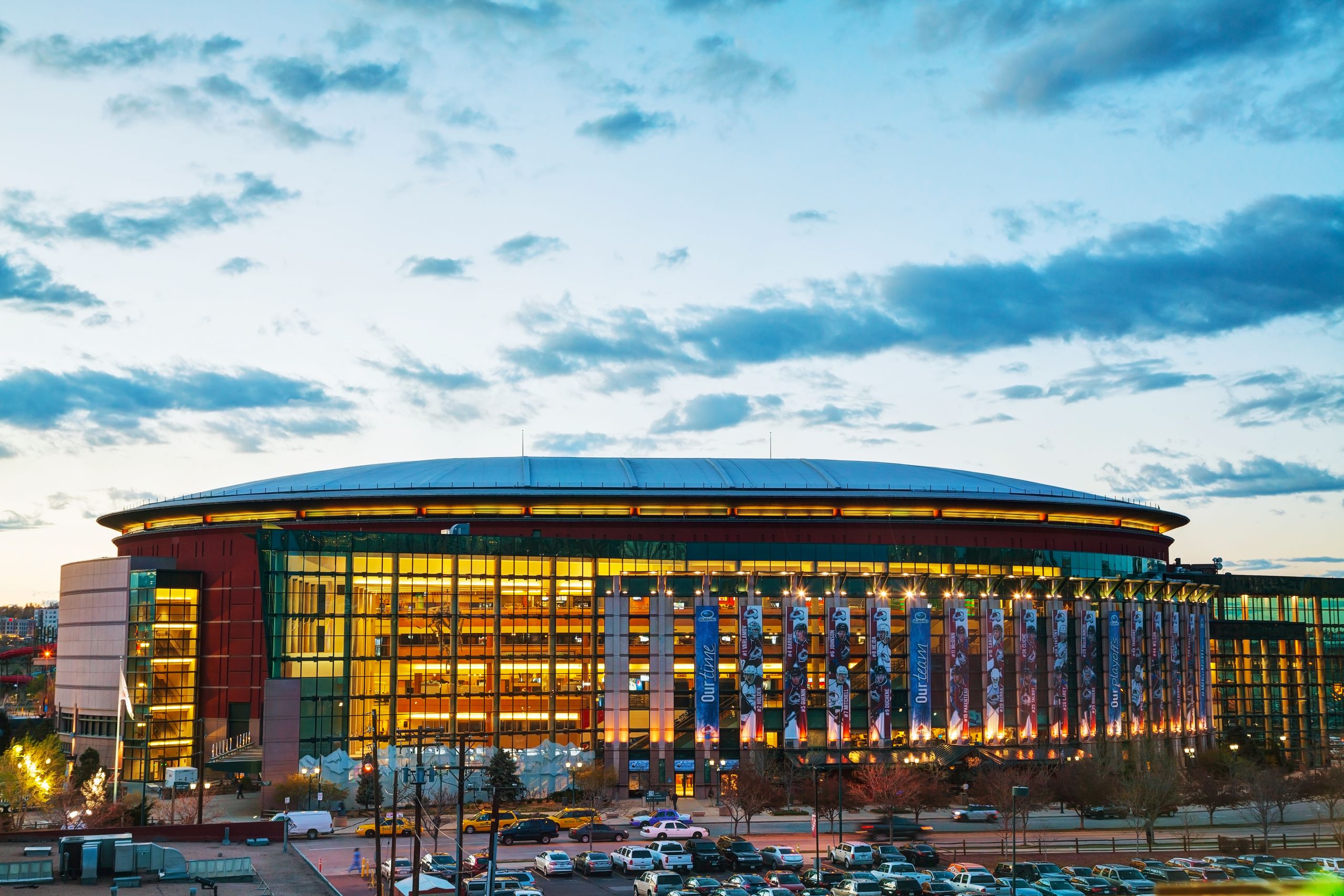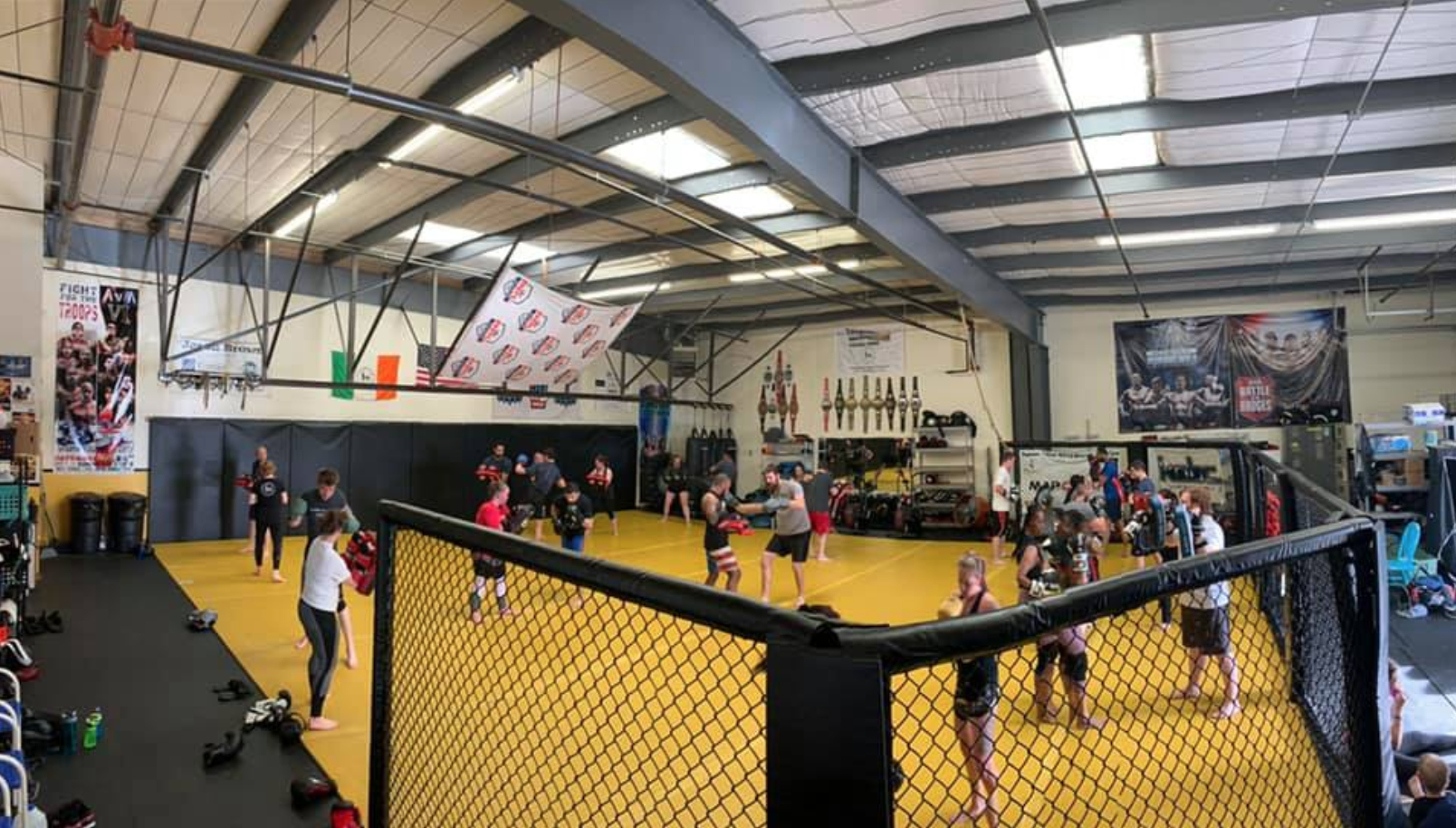Colorado MMA: How the Centennial State Became a "Mecca" for Mixed Martial Arts
By Casey Slattery, Alex Conrad and Daniel Byrnes
CU News Corps, April 30, 2020

Nov. 12, 1993. This would prove to be the day that the sport of Mixed Martial Arts would change forever. It was the first ever event for the Ultimate Fighting Championship, more commonly known as the UFC.
UFC 1 was held at the formerly known McNichols Sports Arena, now the Pepsi Center, right here in Denver. On that day, only 7800 fans packed themselves inside McNichols – less than half of the capacity at the time.
Fast-forward 27 years and the UFC has just had its 248th pay-per-view event, not to mention all of their Fight Nights that have happened since. MMA has exploded in popularity, with promotions popping up around the United States and indeed across the globe. So much so that UFC President Dana White has been quoted in a Forbes article saying that the UFC is worth an eye-watering $7 billion. That’s just the UFC alone, and not even factoring in the countless other promotions across the country and the world.
Colorado is arguably the birthplace of the UFC, and in turn, modern-day MMA. But the sport lay dormant in the state for years.
Over the course of 18 years, from UFC 1 back in 1993, only 18 events with major promotions had taken place. But then MMA roared back to life in the Centennial State with 22 MMA events in 2012 alone. Since then, it’s been an upward trend, with the number of events peaking in 2013 with a whopping 45 events. There were 14 events scheduled up until May 2, however with the COVID-19 pandemic, this has put all plans of future bouts under a cloud of uncertainty.
“In 2012, (MMA) really started getting traction,” said Jerrod Hardy, one of the founders of Trials MMA, a gym based out of Fort Collins. “So then you had kids and adults who’d been training for multiple years.”
Hardy, who spent 21 years in law enforcement as well as a stint with the Air Force, had his first amateur fight at the grand age of 42 in 2014.
“I was scared to death, to be honest with you,” Hardy said. “I was fighting a 22, 23-year-old kid at the time but it was a challenge. I really did it just to show people that you’re never too old to pursue a dream, to try a new challenge.”
Some die-hard MMA fans will point to UFC 135 for causing a spike in the number of MMA events taking place in Colorado.
On Sept. 24, 2011, UFC 135 saw Jon Jones defend the Lightweight Championship of the world for the first time ever against Quinton “Rampage” Jackson. Those two fighters shared the same floor with Royce Gracie, Ken Shamrock and Gerard Gordeau at the very first UFC event.
Over 16,000 fans piled inside the Pepsi Center that day and over 500,000 people bought the event on pay-per-view, representing a stark contrast from UFC 1 18 years ago.

The Pepsi Center in Downtown Denver. Source: photo.ua / Shutterstock.com
The Pepsi Center in Downtown Denver. Source: photo.ua / Shutterstock.com
But what’s happened in the world of MMA since 2012?
According to the other co-founder of Trials MMA, Ryan Schultz, a lot.
“The money’s better!” exclaimed Schultz, with a cheeky grin on his face.
“Man, I did three fights in one night for $2,000. That’s nothing.”
He’s not wrong, either.
Conor McGregor, a former UFC featherweight and lightweight Champion, stood to make a guaranteed purse of $5 million in his recent fight against Donald “Cowboy” Cerrone – a Denver local – before any consideration of pay-per-view buys and other sponsorship.
Schultz himself has had a fighting career that has spanned the globe, with fights in the United States and a stint with the promotion World Victory Road in Japan. The 42-year-old Nebraska native also had the honor of being the inaugural International Fight League lightweight champion in 2007.
Of all the possible locations to invest time, money and effort, Hardy and Schultz chose Colorado, opening Trials MMA in 2010 and helping Colorado MMA become the force that it is today.

The mats at Trials MMA. Courtesy of: Jerrod Hardy, Co-Owner of Trials MMA
The mats at Trials MMA. Courtesy of: Jerrod Hardy, Co-Owner of Trials MMA
“I think people in Colorado are focused on fitness a lot, and being in shape,” Schultz said. “You get those people in the gym and it takes away the black eye of MMA, like they’re just a bunch of thugs, then they see that they’re real athletes and good people.”
One fighter that is looking to become the next champion from Colorado is one of Trials MMA’s own.
Justin Gonzales, who goes by the nickname “J-Train,” was gearing up for the biggest fight of his life on April 3, when he would have contested for the Legacy Fighting Alliance (LFA) Featherweight Championship. However, the COVID-19 pandemic has shelved those plans for now. But his connections with Hardy and Schultz stretch back to his youth.
“I’ve known Coach Hardy since I was a little guy through wrestling, and I met Coach Ryan when I started coming here,” Gonzales said. “I want the best I can find, I want the best people around me, and these guys motivate me, they push me and they bring out the best in me.”
Gonzales is one example of a Colorado born-and-bred fighter, but some of the transplants have been equally impressive.
Curtis "Razor” Blaydes was born in Naperville, Illinois, but decided to make the move to Colorado in 2016. Blaydes is ranked third in the UFC heavyweight rankings, but his career hadn’t exactly been smooth sailing.
It was a defeat in his first-ever UFC fight that made Blaydes recognize he needed to move away from his training gym in Chicago. He paid a visit to Kings MMA, based out of Huntington Beach, California, but decided that Elevation Fight Team in Colorado would be his new home.
“I went because of the elevation,” Blaydes said. “Conditioning is a major, major factor at heavyweight, because if you can bounce on your feet longer than your opponent then you probably have a good chance of winning.”
The move has paid dividends, as the switch to Elevation Fight Team has seen him embark on an incredible run of nine wins and one loss that has him firmly in the heavyweight title picture.
Since Blaydes made the move in 2016, he says he recognizes just how much the Colorado MMA scene has grown.
“Initially it was just Neil Magny, Drew Dober, Bojan Veličković, and I guess me,” Blaydes said.
“There’s been a major influx. We’ve had an influx of regional pros and even a couple of amateurs. That wasn’t the case a year ago.”
The Colorado MMA scene is also quite a tight-knit community, which Blaydes and other fighters say is built on family values as well as respect.
“Everyone’s real nice, there’s no cliques, there’s no ‘I’m better than you’, none of that,” Blaydes said. Nobody’s a ‘me, me, me’ guy or looking to garner extra attention. All the way from the top down, everyone is treated with the same amount of respect.”
The concept of one big MMA family especially rings true for Gonzales, a Greeley native, who trains all over the state.
“I train here at Trials. I train at Top Notch Sports Academy in Greeley. On Fridays I go up and spar at Elevation (MMA gym in Denver). Thursdays I go wrestle at the University of Northern Colorado. Saturdays it just depends.”
“All these gyms accept me in. I think we’re helping build each other.”
Gonzales is just one of many fighters who embrace the grind of driving across Colorado just to get his training in.
Grant Neal, a former CSU-Pueblo football player turned MMA star, says that his home state is the place to be for training in MMA.
“Colorado is like the Mecca for MMA,” Neal said.
“You got the elevation so that’s one thing. You got the Olympic training center, so you could utilize the wrestlers and wrestling from there. And then you just have the culmination of a ton of great fighters just living in a pretty dense area so you can elicit the help of all the other professional fighters that have done it before you.”
When it comes to training, Neal puts your average fitness regimen to shame.
“I have usually around three practices a day during fight camp,” Neal said. He had a fight scheduled on May 9 in the Bellator MMA promotion, but that will have to wait with the COVID-19 situation. Typically, his fight camp lasts around eight weeks before the bout.
“Start in the morning with strength and conditioning, then I go to specialized training whether that’s wrestling, jiu-jitsu, boxing, kickboxing. Then I go to either another training session as far as conditioning and stuff, so I’m riding a bike, swimming, or doing yoga.”
To Neal, the drive of doing whatever it takes to be the best is exactly what defines a Colorado MMA fighter.
“Colorado MMA is gritty, it’s tough. If you’re willing to sacrifice, cause there’s a lot of sacrifices that come with it, Colorado is the best place for that.”
With Neal and Gonzales among a host of other Colorado born-and-bred talent rising through their respective ranks, it appears that there is no end in sight for the thundering steam train that is Colorado MMA.
